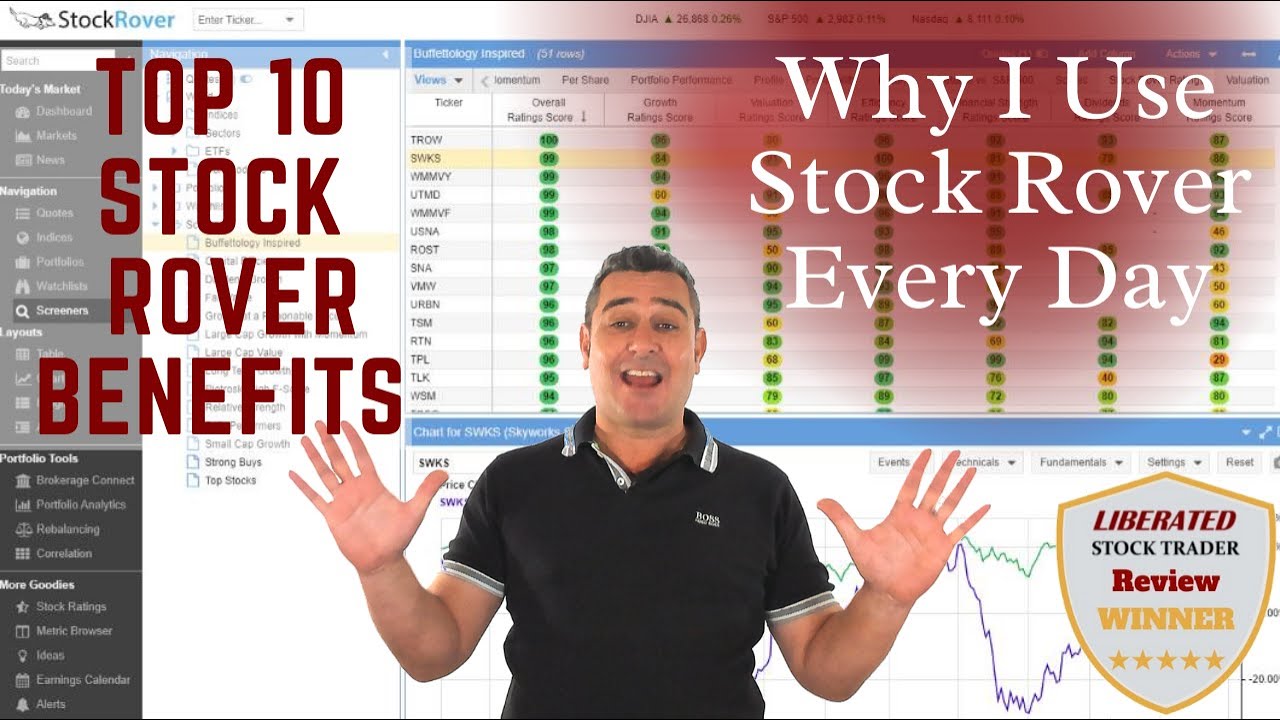Our research shows that overconfidence and a lack of a robust trading plan are the biggest reasons traders lose when trading with margin or leverage.
Trading on margin trading involves borrowing money from a broker to purchase stock, allowing traders to buy more stocks and amplifying potential gains or losses.
While it is attractive for those looking to capitalize on short-term market movements, it is important to note that trading on margin comes with its risks. If a trade turns against you, you could suffer substantial financial loss, as you must repay the borrowed amount regardless of the outcome of your trade.

Understanding Margin Trading
In its simplest terms, margin trading refers to using borrowed funds from a broker to trade a financial asset, which forms the collateral for the broker’s loan. A margin account is essentially a line of credit where the securities in the investor’s account serve as collateral.
The main purpose of margin trading is to increase the potential return on investment. It allows traders to open larger positions than possible with their capital alone. However, while margin trading can offer larger potential gains, it also comes with the risk of amplified losses.
Traders must maintain a minimum margin in their account, failing which they may be subject to a margin call and a potential forced liquidation of their positions.
How Margin Trading Works
Margin trading allows traders to borrow money to buy more shares than their current capital would allow.
Margin Accounts
It starts with the trader opening a margin account with a broker, which requires an initial investment known as the ‘minimum margin.’ This is usually a percentage of the total transaction value. Once this account is established, traders can borrow up to 50% of the purchase price of a stock.
The borrowed money isn’t free, of course. Interest is charged on it as long as the loan is outstanding. The interest charges are automatically debited from the trader’s account.
When a trader sells the stock in a margin account, the proceeds go to the broker against the repayment of the loan until it is fully paid.
Maintenance margin
There is also a ‘maintenance margin,’ which is the minimum account balance a trader must maintain before the broker will force the sale of the stock to repay the loan. If the trader’s balance falls below this level, the broker may issue a ‘margin call,’ requiring the trader to deposit more cash or sell some of the shares.
Remember, while this form of trading can magnify profits in a successful trade, it can also magnify losses if the trade goes bad. It’s risky, and it’s not for everyone, but for traders who understand how it works, margin trading can be a powerful tool in their investment strategy.
Margin call
A margin call is a demand from the broker to increase your account’s equity or deposit more money to cover potential losses. It’s triggered when there is insufficient usable margin in a trader’s account to cover additional losses. A margin call usually involves selling some of the stock held by the trader, with any remaining funds being used to reduce the loan balance.
It’s important to understand when a margin call may occur and to be prepared with additional cash or securities if necessary. If you fail to meet the margin requirements, the broker can sell some of your account’s assets without further notification. This could result in large losses that should have been avoided by proper planning and assessment of risk factors.
Our research shows overconfidence is the biggest reason traders lose with margin trading. If you are not a profitable experienced trader, you should avoid trading on margin.
You want to be a successful stock investor but don’t know where to start.
Learning stock market investing on your own can be overwhelming. There’s so much information out there, and it’s hard to know what’s true and what’s not.
Liberated Stock Trader Pro Investing Course
Our pro investing classes are the perfect way to learn stock investing. You will learn everything you need to know about financial analysis, charts, stock screening, and portfolio building so you can start building wealth today.
★ 16 Hours of Video Lessons + eBook ★
★ Complete Financial Analysis Lessons ★
★ 6 Proven Investing Strategies ★
★ Professional Grade Stock Chart Analysis Classes ★
The Process of Buying on Margin
Buying on margin is a simple yet structured process. First, you need to set up a margin account with your broker, which requires an initial investment, typically a certain percentage of the total value of the transaction. This initial investment is known as the ‘minimum margin.’
Once your account is established, you can borrow up to 50% of the purchase price of the stock. The broker lends you the remaining balance, and you pay interest on this loan for as long as it is outstanding. The interest charges are automatically debited from your account.
You then go ahead and purchase the stock. If the stock price increases, you can sell the stock, repay the broker, and keep the profit. However, you’ll still need to repay the broker if the stock price decreases. This can result in a ‘margin call,’ where the broker requires you to deposit more cash or sell some of the shares to maintain the ‘maintenance margin.’
It’s crucial to be mindful of the risks associated with margin trading. While it can boost potential profits when trades go well, it can also exacerbate losses when trades go poorly. Therefore, understanding the process and associated risks is key to successful margin trading.
The Role of Brokerage Firms in Margin Trading
Brokerage firms play a pivotal role in margin trading. They act as intermediaries, providing the necessary funds for margin trades and facilitating transactions. When investors decide to trade on margin, they first need to open a margin account with a brokerage firm. The brokerage firm sets the terms for the margin account, which typically include the minimum margin requirement and the interest rate on the borrowed funds.
Once the account is set up, the investor can begin trading. They can borrow up to 50% of the purchase price of a stock, with the brokerage firm lending the remaining amount. The investor is charged interest on the borrowed funds for as long as the loan is outstanding.
One of the key responsibilities of a brokerage firm in margin trading is to monitor the investor’s account to ensure that the maintenance margin is being met. If the value of the investor’s portfolio falls below the maintenance margin due to trading losses, the brokerage firm may issue a ‘margin call.’ This demands the investor to deposit additional funds into their account. If the investor cannot meet the margin call, the brokerage firm has the right to sell the investor’s securities to cover the shortfall.
Brokerage firms are also responsible for educating their clients about the risks of margin trading. Investors must understand that while trading on margin can amplify potential gains, it can also lead to significant losses. Therefore, brokerage firms play a vital role in ensuring that margin trading is conducted fairly and transparently and that investors are fully aware of the risks involved.
Our research into margin trading
Our analysis focused on various subreddits related to trading and investing, including r/wallstreetbets, r/IndianStreetBets, r/investing, r/Daytrading, and others. We utilized advanced data scraping tools to extract all threads and comments related to margin trading from these subreddits. This process involved identifying keywords and phrases associated with margin trading and financial loss, such as “lost money,” “margin call,” “debt,” and “negative balance.”
The data was then categorized based on the subreddit it originated from, the number of comments, and the posting date. We also considered the size of the subreddit community as a factor in our analysis, as larger communities may naturally have a higher volume of margin trading discussions.
Reddit Margin Trading Findings
Based on our analysis, we found many threads discussing losses related to margin trading. Below are some key insights:
High Volume of Concerns
A notable volume of threads discussed margin trading losses across all analyzed subreddits. The highest number of discussions was found in r/wallstreetbets, followed by r/investing and r/Daytrading.
Trending Topics
Several common themes emerged among these discussions, including the risks of overconfidence, the impact of market volatility, and the challenges of meeting margin requirements.
Community Response
In many threads, other community members offered advice and shared their experiences, highlighting these online communities’ supportive nature. Common advice included caution against over-leveraging and understanding margin trading risks.
Investing In Stocks Can Be Complicated, Stock Rover Makes It Easy.
Stock Rover is our #1 rated stock investing tool for:
★ Growth Investing - With industry Leading Research Reports ★
★ Value Investing - Find Value Stocks Using Warren Buffett's Strategies ★
★ Income Investing - Harvest Safe Regular Dividends from Stocks ★

"I have been researching and investing in stocks for 20 years! I now manage all my stock investments using Stock Rover." Barry D. Moore - Founder: LiberatedStockTrader.com
Margin: Risks and Rewards
Understanding the risks and rewards of margin trading is crucial for any trader considering this strategy. Margin trading’s advantage is its potential for significant returns. Traders can use borrowed money to invest in larger stock quantities, amplifying their potential gains if the stock price increases. However, the risks are equally magnified.
If the stock price declines, the losses can be severe, and you are still obligated to repay the loan amount to the broker, regardless of the loss. Therefore, comprehending these potential outcomes enables traders to decide whether margin trading aligns with their risk tolerance and investment goals.
Benefits of Margin Trading
One of the most significant advantages of margin trading is the potential for increased profits. Using borrowed funds to purchase more shares than they could with their capital, investors can amplify their gains if the stocks they purchase increase in value. This leverage can significantly enhance the return on investment. For instance, if an investor uses their funds to buy 100 shares of a stock and the price increases by 10%, they make a 10% profit. However, if they used a margin to buy 200 shares, that 10% increase would double their original profit. However, it’s crucial to remember that while margin trading can magnify profits, it can also magnify losses if the stock price decreases.
Access to Additional Capital
Another key advantage of margin trading is that it gives investors access to additional capital. This is particularly beneficial for traders who believe in the potential of their investment choices but lack the necessary cash to invest at the desired level. By trading on margin, they can borrow from the brokerage firm to purchase more shares than they would have been able to with their funds alone. Consequently, they can take advantage of investment opportunities they may have missed.
This increased buying power can lead to greater diversity in their portfolio, spread risk across a broader range of investments, and potentially increase returns. However, it’s crucial to remember that the borrowed money must be returned, and interest payments can accumulate over time.
Therefore, while access to additional capital can be advantageous, it must be managed wisely.
Flexibility and Diversification Opportunities
Margin trading offers a high degree of flexibility, allowing traders to react quickly to market conditions and opportunities. Instead of selling existing investments or waiting for additional cash, margin trading provides immediate access to capital. This allows traders to act swiftly, whether they wish to purchase a promising stock or cover an unexpected loss.
Furthermore, by enabling traders to buy more shares of different stocks, margin trading aids in diversifying portfolios. Diversification is a key risk management strategy, as it spreads the risk among various investments. If one stock performs poorly, gains from others may offset the losses. However, like other aspects of margin trading, diversification comes with risks and should be approached with a clear understanding and strategy.
As always, it’s crucial to remember that all investments involve some level of risk, and past performance does not indicate future results.
Get The Best Backtesting SoftwareMy original groundbreaking research on the profitability and success rates of chart patterns and indicators relies on the best backtesting software available. If you want to craft an original, profitable trading strategy, dive into our exclusive review of the best backtesting software to find the perfect solution for your future trading needs!

Risks of Margin Trading
Despite the potential benefits, margin trading has risks that must be carefully considered before engaging in such transactions. One of the primary risks is that of increased potential losses.
Potential for substantial losses
When investors trade on margin, they use borrowed money to invest in stocks, amplifying losses just as it can amplify profits. If the value of the stocks declines significantly, investors could find themselves in a position where they owe more money than initially invested.
Margin calls and forced liquidation
Another risk is the potential for a margin call. Suppose the value of the securities in an investor’s margin account falls below the broker’s maintenance margin. In that case, the broker may issue a margin call, requiring the investor to deposit additional funds. If the investor cannot do so, the broker could sell the securities in the account, potentially resulting in a significant loss for the investor.
Interest charges and additional costs
Margin trading often involves interest charges for the borrowed funds. These interest expenses can accumulate over time, reducing the net profit or adding to losses. Therefore, investors need to factor in these costs when calculating their potential return on investment.
Given these risks, it’s imperative that investors thoroughly understand margin trading and carefully consider whether this investment strategy aligns with their risk tolerance and financial goals. It’s also advisable to seek professional financial advice before trading on margin.
Examples of Margin Trading
Trading stocks on margin
One of the most common examples of margin trading is investing in stocks. By leveraging credit from a brokerage firm, investors can purchase more shares than they could with their capital. In addition to stocks, other investments, such as futures and options, can also be traded on margin.
Short-selling
Another example is short selling, which involves borrowing shares of stock from a broker and selling them in the open market. If the stock value declines, the investor can purchase it back at a lower price and return it to the broker, thus generating a profit from the difference. Although this strategy has the potential for large profits, it also carries greater risk as there is no limit on how much an investor could lose if the stock’s value increases instead of decreasing.
Commodities
Finally, margin trading also enables investors to use leverage when purchasing commodities such as gold or oil. Using borrowed funds, traders can purchase more contracts than they could with their capital and benefit from price movements without committing large amounts of cash upfront. However, the same leverage that magnifies profits also amplifies losses if prices move in the
Successful Margin Trading Scenarios
Successful margin trading often involves a keen understanding of the market and strategic decision-making. For instance, consider an investor who borrows money to buy shares of a promising company. If the stock price rises significantly, the investor can sell the shares, repay the borrowed money, and make a substantial profit.
Another successful scenario could be a trader who uses margin to diversify their portfolio. By borrowing funds, the trader can invest in a wider range of stocks than they could have with their capital, spreading the risk and potentially earning higher returns if multiple investments perform well.
When executed correctly, short selling can also lead to success in margin trading. If a trader accurately predicts a drop in a stock’s price, they can borrow shares, sell them, and then buy them back at a lower price, earning a profit from the difference.
Lastly, consider a commodities trader who uses margin to invest in gold contracts. If the price of gold increases as forecasted, the trader can sell the contracts, repay the borrowed funds, and pocket the remaining profit.
However, it’s important to remember that these scenarios depend on favorable market conditions and accurate predictions. All forms of margin trading carry risks, and just as they can result in significant profits, they can also lead to large losses. Therefore, potential investors should consider their risk tolerance and seek professional advice before engaging in margin trading.
Unsuccessful Margin Trading Scenarios
Despite its potential for high returns, margin trading can result in substantial losses if market conditions do not favor the investor’s predictions. For instance, an investor who borrows money to buy company shares can face significant financial loss if the stock price falls. The investor might be forced to sell the stock at a lower price, resulting in a loss greater than their initial investment due to the borrowed money’s interest.
Similarly, a trader who uses a margin to diversify their portfolio may spread their risk too thin. If multiple investments perform poorly, the trader could face larger losses than using only their capital. The accumulated interest on the borrowed money further compounds the losses.
The risks inherent in short selling can also lead to unsuccessful trading scenarios. If a trader borrows and sells shares, anticipating a price drop, but the stock price increases, they’ll have to buy back the stock at a higher price. This could result in losses that are, in theory, limitless since there is no upper limit to how high a stock’s price can go.
Lastly, in commodities trading, price fluctuations can work against the trader. If a trader uses a margin to buy gold contracts and the price decreases, the trader has to sell the contracts at a loss. Combined with the interest on the borrowed money, this can lead to significant financial losses.
These examples underscore the risks associated with margin trading. Market predictions are never guaranteed, and borrowing money can amplify losses. Therefore, potential investors should carefully evaluate their financial situation and risk tolerance before engaging in margin trading. Consulting with a professional financial advisor is often a wise course of action.
7 Practical Strategies for Margin Trading
1. Only use margins with profitable strategies
Margin trading can offer significant rewards but carries very high risks. Don’t use margin unless you have a proven profitable strategy in place. You should not use margin if you are not a proven successful and profitable trader.
2. If in doubt, avoid using margin!
If you’re unsure about the risks associated with margin or are a novice or moderately experienced investor, you must avoid using margin.
3. Start Small
It is advised that beginners start with a smaller scale of margin trading. This will allow them to understand how margin works without exposing themselves to large risks.
4. Diversify
Diversification is a key strategy in any form of trading. Don’t put all your eggs in one basket; spread your investments across various assets and small trades to reduce the risk and exposure.
5. Use Stop-Loss Orders
A stop-loss order is placed with a broker to sell a security when it reaches a certain price. This can limit the potential loss on an investment and is particularly useful in margin trading.
6. Monitor Your Position
When trading with margin, checking your position and monitoring your securities regularly is important. Staying aware of any changes in market conditions or news can help you to make informed decisions when it comes to managing your investments.7. Be Patient
Patience and discipline are essential components of successful investing, especially when using margin; take
Trading on Margin Findings
Margin trading is a double-edged sword, providing the potential for high returns and exposing investors to significant risks. Investors must be aware that using borrowed funds can amplify gains and losses. The success of margin trading largely hinges on accurate market forecasts and strategic execution.
Investors can employ several strategies to mitigate the risks. It’s often recommended to start small and diversify investments across different assets. Stop-loss orders, continuous market research, and seeking advice from a financial advisor can further safeguard investors.
Wise use of leverage, a clear plan, and risk assessment are also crucial elements of successful margin trading. However, all these strategies do not assure profit but can help make informed decisions.
Final Thoughts
The examples presented in this document underscore the dual nature of margin trading. On the one hand, when market forecasts are accurate, and conditions are favorable, margin trading has the potential to yield substantial profits. It allows investors to purchase more shares, diversify their portfolio, or speculate on stock price decreases with limited upfront capital. The successful scenarios highlighted that buying promising stocks, portfolio diversification, short selling, and trading in commodities demonstrate how margin trading can amplify gains strategically.
On the other hand, the unsuccessful scenarios paint a contrasting picture. The losses can be significant if the market does not behave as predicted or several investments perform poorly. They can surpass the initial investment due to interest on the borrowed funds. The unsuccessful scenarios of purchasing shares that decrease in value, over-diversification of the portfolio, unsuccessful short selling, and unfavorable commodities trading emphasize the need for careful market analysis and risk assessment.
Overall, these examples suggest that while margin trading can be a powerful tool for increasing potential returns, it also increases the potential for significant losses. It is not a strategy that should be undertaken lightly or without careful consideration and consultation with a financial advisor.

